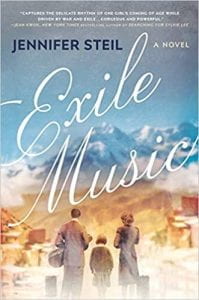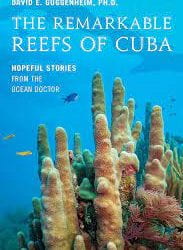A Review of Exile Music
A Testament to The Jewish Latin America Diaspora
Novels about the Holocaust and Jewish survival span countries and languages and audiences of all ages. Such stories tend to be told against a European or United States background. Rarely does a novel involve European Jewish refugees who found sanctuary in Latin America.
Journalist and novelist Jennifer Steil takes on this much-overlooked angle in her latest novel, Exile Music, a beautifully told and well-researched story that follows a Viennese Jewish refugee family to La Paz, Bolivia, at the onset of World War II. The story focuses on three family members who each have their own reactions to the strange new world they’ve found themselves in. Exile Music is a moving testament to the Jewish experience in Bolivia. But avid readers of Latin American history, World War II and women’s studies can enjoy Exile Music on several different levels.
Exile Music is told from the perspective of a young Jewish girl, Orlanthe (“Orly” for short), who lives in 1930s Vienna with her older brother, Willi, their father, a viola player for the Philharmonic, and their mother, an opera singer. The family enjoys a comfortable, loving, and, most significantly, music-filled existence. Orly also enjoys a close friendship with her neighbor, Anneliese, a non-Jew with Nazi-leaning parents. The novel not too subtly suggests the two girls have romantic feelings for one another.
Germany’s annexation of Austria in 1938 forces Orly’s family to consider leaving. Shortly after being forced out of their home to relocate to the Jewish quarter, Leopoldstadt, where they’re made to live in unsanitary, crowded conditions, the family helps the military-age Willi disappear and evaluates their options for a new life elsewhere. Orly’s parents apply for visas to countries that have renowned art scenes, as they hope they’ll be able to continue working wherever they end up. But Orly notes that countries accepting Jews did not want musicians or actors and such. Instead, they wanted “people with practical skills who would earn a steady and taxable income.” Orly’s parents are low in the increasingly impossible pecking order.
Nevertheless, the three begin a grueling routine, standing in line at various embassies, hoping to gain as many visas as they can for them and their extended family. Their options are few, and one country they have any real hope for is Bolivia.
Their desperation shows when they apply for visas and are told their chances will be greater if they agree to become agricultural laborers. To their immense relief, they end up acquiring visas without having this obligation. Months later, understandably terrified that something bad could happen, Orly and her parents make it out of Austria and, via Genoa, head by boat toward Bolivia. None of their extended family members are able to go with them.
To say Orly’s parents are bewildered by their new environment is an understatement. They are sorely disappointed by the lack of a classical music scene in La Paz. Orly’s mother, in particular, has difficulty adapting, as the higher altitude and thinner air make it difficult for her to sing. She is also worried about her son, whose exact whereabouts are unknown. When Orly questions her mother’s continued decision not to sing her to sleep at night, her mother’s response is “Singers require two things: air and joy. Here I have not enough of either.”
This attitude frequently frustrates Orly over the years. She quickly becomes enamored by her new surroundings. She’s happy to spend time with her new friend, Miguel, and learn about her new country. Orly also appreciates that she can live with her parents in their own apartment, as rudimentary as it is, instead of the crowded Jewish quarter back in Europe. She loves the city’s colorful trams and buildings and people. She also loves the surrounding mountains, especially Illimani, musing “It frustrated me that my mother couldn’t see the same things. That her eyes absorbed only dirt and disappointment. How could she fail to note that every place we saw looked better than the few filthy feet of floor space we had had in Leopoldstadt? I didn’t care what our apartment looked like, as long as it was ours alone. At long as it meant we were safe.”
Years go by and the war passes, but Orly and her parents end up staying in La Paz. They don’t have the money to begin new lives elsewhere. Orly is relieved. She’s deeply engrained in the culture and has built a good life there. She learned to play a local instrument, the charango, enjoys the new foods she’d been introduced to such as avocados and the crunchy wheat bread known as marraquetas. She loves speaking Spanish.
As much as Orly adores her adopted country, though, she’s never forgotten about Anneliese or the strong feelings she had for her. A few more years go by before they are finally reunited, but it’s clear that their respective lives have taken very different paths.
Steil’s novel is a thoroughly researched gem. The same way that fans of Diana Gabaldon’s Outlander series might enjoy the research that went into every page just as much as they enjoy the central love story, Exile Music readers will no doubt appreciate the many fine details throughout Steil’s novel. From the pastries Orly enjoyed eating in Vienna during better days to the description of Lake Titicaca, Steil provides vivid details that showcase the beautiful life Orly lost from before being sent to the ghetto and the romanticism of the new one she found herself in.
Several actual historical figures—both good and the bad—make cameo appearances or are mentioned. These include the mining mogul Mauricio Hochschild, whom history has referred to as the “Bolivian Schindler” for his efforts to save Jews, as well as Klaus Barbie, a Nazi and the head of the Gestapo in Lyon, France who was known as the “Butcher of Lyon” and spent more than three decades living in Bolivia.
Orly’s one flaw—if we can even call it that—is her innocence. While she was no stranger to hardship throughout her journey, especially right before her family fled Vienna, she was able to escape many of the horrors facing people who could not escape. This innocence reveals itself the most when her Aunt Thekla joins the remaining family in La Paz. The once lively aunt arrives an empty shell, haunted by the horrors she witnessed while in a concentration camp and desperately mourning the loss of her husband and children. This innocence also shows when Anneliese talks about the horrors she witnessed in Vienna during the war after Orly left. And while Orly certainly misses her brother, she’s very engrossed in her new world and revels in its novelty.
That being said, Orly’s flaw is also one of the novel’s greatest strengths. She’s fair about the whole situation. She notes during the visa paperwork process that she couldn’t blame the Bolivians for anything. She doesn’t feel badly toward the Bolivian embassy worker in Vienna for suggesting she and her family try to become agricultural workers. The love she feels for her new country is solidified when it’s time for her to attend university and she feels no qualms about attending a local school in La Paz. Her parents suggested she go abroad, but Orly knows this is practically impossible for a variety of reasons, including financial ones. As she puts it, “Only Bolivians, I tried to explain to my parents, could teach me what I wanted to know.”
Exile Music transcends genres. From Latin American literature to Holocaust literature to Jewish literature to lesbian literature, Exile Music could easily be shelved in many different places in a bookstore or library. Steil’s thorough research provides a solid foundation that allows this story to be told with a great deal of heart, and that is to be admired.
Spring/Summer 2020, Volume XIX, Number 3
Cristina Merrill is a Chicago-based writer and avid reader. You can follow her on Instagram at @cristinalovesbooks.
Related Articles
A Review of The Remarkable Reefs of Cuba: Hopeful Stories From the Ocean Doctor
It feels as though work takes up more and more of our lives, expanding into time it never used to touch.
A Review of Now We Are in Power: The Politics of a Passive Revolution in Twenty-First Century Bolivia
In Now We Are in Power, Angus McNelly provides an incisive examination of Bolivia’s complex political trajectory under Evo Morales, analyzing it through the lens of Antonio Gramsci’s seminal concept of “passive revolution.”
A Review of Roots of Resistance: A Story of Gender, Race, and Labor on the North Coast of Honduras
Once home to sprawling banana plantations under the control of U.S. multinationals, the history of the northern coast of Honduras is crucially bound with capitalist exploitation and extraction.





